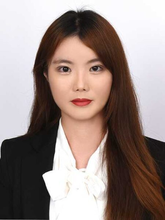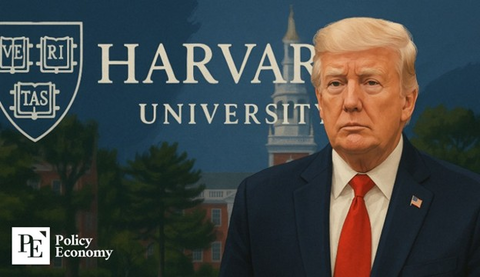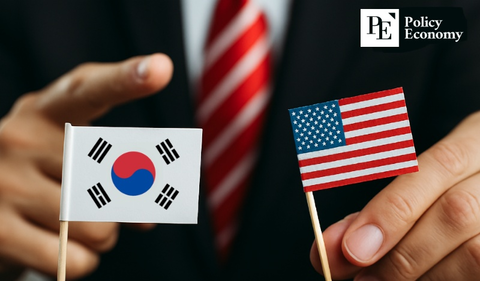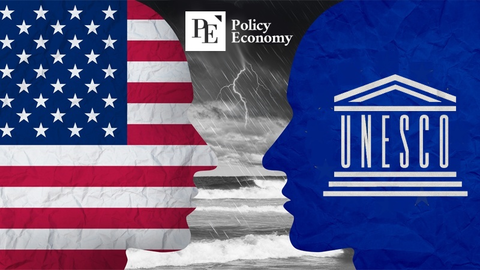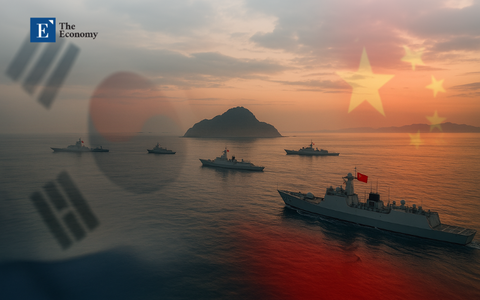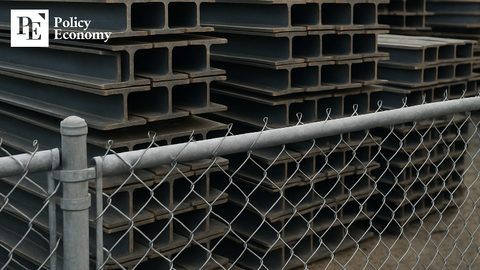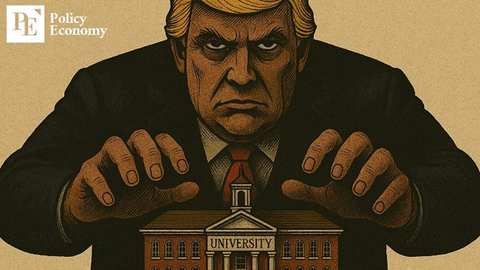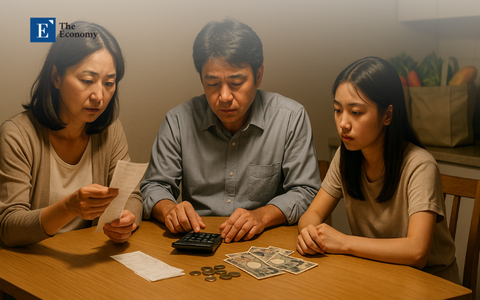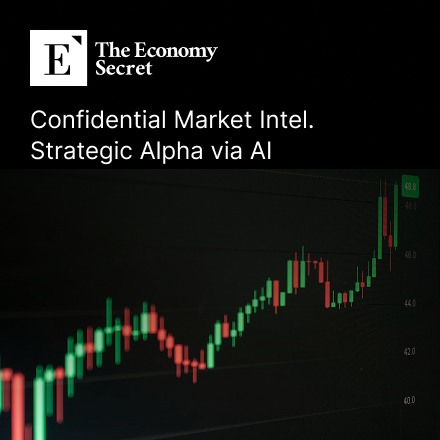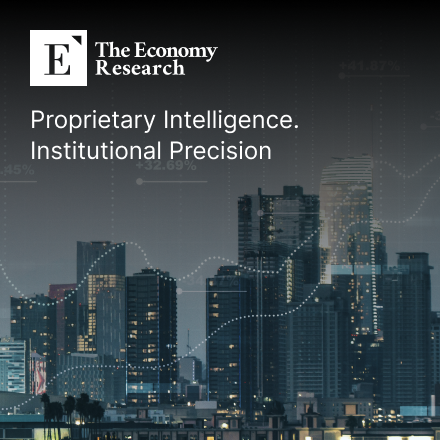입력
수정
[동아시아포럼]은 EAST ASIA FORUM에서 전하는 동아시아 정책 동향을 담았습니다. EAST ASIA FORUM은 오스트레일리아 국립대학교(Australia National University)의 크로퍼드 공공정책 학교(Crawford School of Public Policy) 산하의 공공정책과 관련된 정치, 경제, 비즈니스, 법률, 안보, 국제관계 및 사회에 대한 분석 및 연구를 위한 플랫폼입니다.
저희 폴리시코리아(The Policy Korea)와 영어 원문 공개 조건으로 콘텐츠 제휴가 진행 중입니다.

박준은 슈미트 퓨처스 국제전략포럼의 초대 아시아 펠로우이자 워싱턴 DC에 있는 국립 아시아 연구국의 비거주 펠로우다. 또한 브루킹스 연구소의 동아시아 정책 연구 센터의 전문가 그룹에 자문을 맡고 있다. 에너지, 기술, 안보' 프로젝트를 수행하면서 카타르 조지타운대학교(GU-Q) 소국 연구 프로그램의 장기 프로젝트인 신흥 기술 워크숍의 전문가 PI(책임 연구자)로 활동했다.
2023년 7월부터 2024년 4월까지 네덜란드 라이덴 아시아 센터의 선임 객원 연구원으로 아노마 반 더 비어 박사와 함께 '미중 기술 전쟁 속 한국 반도체 산업' 프로젝트를 수행할 예정이다. 프린스턴 대학교의 프린스턴 국제 및 지역 연구소(PIIRS)에서 2021-2022년 펑 글로벌 펠로우(Fung Global Fellows Program)로 근무했다.
미국이 반도체 산업의 패권적 지위를 확보하려는 노골적 행보를 보이고 있다. 미국 상무부 산하기관 산업안보국(BIS)은 지난해 10월 7일 반도체 및 반도체 제조 장비, 특히 중국에 수출되는 반도체에 대한 수출 통제를 강화하는 새로운 규정을 발표했다. 연이어 지난 3월 미국은 일본 및 네덜란드와 양자 협상을 타결하며 반도체 기술에 대한 수출 통제를 확대했다. 게다가 인공지능국가안보위원회(NSCAI, National Security Commission on Artificial Intelligence)가 펴낸 최종 보고서의 권고에 따라 수출 통제를 더욱 강화할 전망이다.

미중 반도체 전쟁(CHIP WAR)
미국은 지적 재산권 보호와 국가 안보를 수출 통제의 명분으로 내세웠지만, 이면에는 더 복잡한 맥락이 숨어 있다. 현대 국가들은 역사상 그 어느 때보다 군사 및 정보 분야에서 반도체를 더 많이 활용하고 있다. 군사적 응용 분야를 고려할 때 반도체 문제는 단순히 경제적 이슈를 넘어서 국가 안보와 밀접하게 연관되어 있다는 점을 인지할 필요가 있다.
2019년 자료에 따르면 반도체 제조 장비의 전 세계 수출은 일본이 28%의 점유율로 선두를 차지했으며, 미국과 네덜란드가 각각 17%, 싱가포르와 한국이 각각 10%의 점유율로 그 뒤를 이었다. 미국은 업스트림 집적 회로 설계 공정에서 여전히 지배적인 위치를 차지하고 있지만, 미드스트림 집적 회로 제조 공정에서는 네덜란드와 일본과의 치열한 경쟁에 직면해 있다. 또한 미국은 다운스트림 집적 회로 패키징 및 테스트 공정에서도 입지를 잃어가고 있다.
글로벌 반도체 산업의 경쟁은 특히 리소그래피 장비(lithography equipment)에서 두드러지는데, 현재 이 시장은 네덜란드의 ASML이 사실상 독점하고 있다. 리소그래피 장비 시장 규모는 2022년 118억 달러로 평가됐는데, 연평균 10% 성장해 2025년에는 180억 달러에 이를 전망이다.
지난해 10월 미국은 자국 기술과 장비를 활용한 반도체 및 관련 제조장비의 대(對)중국 수출 제한 조치를 발표한 이후, 일본과 네덜란드의 동참을 적극적으로 촉구해왔다. 반도체 첨단 공정용 극자외선(EUV) 노광장비를 독점 공급하는 ASML과 일본 TEL 등 주요 반도체 기업이 중국에 핵심 장비를 공급하지 않도록 하기 위해서다.
수출 통제 조치가 글로벌 반도체 시장에도 상당한 영향을 미치고 있다. 미국의 요청에 따라 네덜란드와 일본이 대(對)중국 수출을 제한할 경우, 반도체 기술의 주요 구매국인 중국에서의 시장 점유율을 잃을 수 있다. 이 경우 수출 규제를 받지 않는 다른 국가나 기업이 중국에 대한 시장 점유율을 높이는 부작용이 있을 수 있다.
네덜란드와 일본의 참전
ASML은 몇 달간 이어진 미국과의 협상 끝에 "익명의 국가에 특정 모델의 반도체 장비를 판매하지 않겠다"고 발표했다. 구체적으로 현재 가장 발전된 형태의 반도체 장비 모델, 즉 트윈스캔 NXT:2000i, NXT:2050i, NXT:2100i의 판매를 금지하기로 결정했다. 이 장비들은 가장 정교한 로직 및 메모리 칩을 만드는 리소그래피 공정에 사용되는 노광 장비의 핵심 부품이다.
ASML은 이번 조치가 현재의 생산 수준에는 영향을 미치지 않는다면서 마찬가지로 회사의 재무 건전성에 영향을 미치지 않을 것이라고 밝혔다. 하지만 BIS가 이미 극자외선(EUV) 장비의 대중 수출을 금지했다는 점을 고려하면 ASML은 사업 다각화를 시도할 필요가 있다. 해당 조치는 네덜란드가 새로운 법률을 제정하고 ASML이 기존 계약을 마무리할 때까지 유예된 상태다.
한편 일본은 지난 3월 자체적인 수출 통제 계획을 발표하며 수출 통제에 동참하겠다는 의사를 밝혔다. 당연히 중국도 희토류 물질에 대한 수출 통제를 언급하며 일본을 위협했다. 미국 워싱턴의 전략국제연구센터(CSIS)가 낸 보고서에 따르면 일본의 도쿄 일렉트론(Tokyo Electron)이 대(對)중국 첨단 반도체 및 칩 제조장비 수출 제한 조치의 영향을 가장 많이 받을 것으로 꼽힌다.
일본의 수출 규제 여파에 따라 캐논(Canon)과 니콘(Nikon)이 리소그래피 사업에 다시 뛰어들 가능성도 있다. 닛케이(Nikkei)에 따르면 캐논은 이미 일본 동부에 새로운 반도체 장비 공장을 건설할 예정이다. 참고로 이 두 회사는 한때 리소그래피 사업에 집중했지만, 카메라 렌즈에 집중하면서 시장 점유율을 잃었다.
미국 기업들도 과도한 규제로 고통받고 있다. 어플라이드 머티어리얼즈(Applied Materials), KLA 그리고 램 리서치(Lam Research) 같은 기업은 대중국 반도체 장비 매출이 급감하면서 즉각적인 피해를 입었다. 규제 도입 당시 미국 업체들은 네덜란드 ASML 및 일본 도쿄일렉트론 등 경쟁업체들은 동 조치를 적용받지 않는다며 반발하기도 했다. 이후 앨런 에스테베즈 상무부 차관 등 미 당국자들은 일본과 네덜란드를 직접 방문하는 등 설득 작업에 박차를 가하며 현재의 미국·일본·네덜란드의 대중국 삼각 포위망이 완성됐다.
반도체 장비에 대한 미국의 수출 통제는 반도체 업계에 파란을 일으키며 주요 기업들의 미래에 그림자를 드리우고 있다. 특히 대한민국과 싱가포르, 독일 같은 나라는 가까운 시일 내에 추가 조치의 영향을 받을 확률이 높다. 미국의 수출 통제로 중국 시장에 대한 접근성이 축소되면서 미국과 중국의 경쟁과 지역간 경제적 갈등이 나날이 격화될 전망이다.
US deals signal heightened semiconductor equipment competition
Export controls on semiconductor technology have been expanded after the conclusion of US bilateral negotiations with Japan and the Netherlands in March 2023. This is only the beginning as the United States is set to further tighten export controls, as recommended in the National Security Commission on Artificial Intelligence’s final report.
The US Department of Commerce’s Bureau of Industry and Security issued new regulations on 7 October 2022, which were expected to bring about protests from semiconductor equipment makers and foundries. While Washington insists that the measures are designed to protect US intellectual property and defend national security, they reflect the heavy competition in the global semiconductor equipment business.
According to 2019 figures, the United States had a 17 per cent share of overall semiconductor manufacturing equipment exports, trailing behind Japan (28 per cent) and closely followed by the Netherlands (17 per cent), Singapore (10 per cent) and South Korea (10 per cent).
The United States is dominant in the upstream integrated circuit design process, but it faces competition from the Netherlands and Japan in the midstream integrated circuit manufacturing process. It also does not have a substantial market share in the downstream integrated circuit packaging and testing process.
The competitive nature of the global semiconductor industry is particularly salient in lithography equipment (dubbed scanners or steppers). The Dutch company ASML Holding NV dominates this market, which was valued at US$11.8 billion in 2022 and is expected to grow at a compound annual growth rate of 10 per cent, reaching US$18 billion by 2025.
The current moves to deter the Netherlands and Japan from exporting semiconductor equipment to China aim to undercut China’s access to high-end chip manufacturing equipment. But these efforts might also lead to a shift in market share depending on how export controls are implemented.
After months of deliberation amid negotiations with the United States, ASML announced it would prevent the sales of specific models of semiconductor equipment to an unnamed country. The affected models were the TWINSCAN NXT:2000i, the NXT:2050i and the NXT:2100i, which are immersion deep ultraviolet machinery used for lithographic processes in the most advanced logic and memory chips.
ASML has announced that the added measures will not affect its revenue, as it is currently operating at capacity. But given that the US Department of Commerce’s Bureau of Industry and Security has already prohibited the sale of extreme ultraviolet machinery to China, ASML must plan its next steps wisely and diversify into other jurisdictions. The additional measures are pending implementation until the Netherlands enacts new laws and ASML is bound by any existing contracts to deliver machines until that time.
Japan has expressed its intent to participate in export controls, announcing its own export control mechanisms in March 2023. But Japanese Foreign Minister Yoshimasa Hayashi subsequently paid a visit to his counterpart in Beijing, Qin Gang, given the possible backlash from China. As expected, China has contemplated placing export controls on rare earth materials in retaliation. There is speculation on which Japanese companies would be subject to the ban on semiconductor equipment sales to China, with the most likely being Tokyo Electron.
Depending on how Japan implements the export curbs, Japanese companies Canon and Nikon may seek to revive their lithography businesses, a market in which they once flourished but in which they have lost market share as they have instead focussed on camera lenses.
The Bureau of Industry and Security measures announced on 7 October 2022 have led to a plunge in semiconductor equipment sales to China, demonstrating the immediate impact of the measures on US companies such as Applied Materials, KLA and Lam Research.
The implementation of US export controls on semiconductor equipment may reset the competition for market share and created uncertainty for major players. Other countries such as Singapore, Germany and South Korea are likely to be subject to additional measures in the near future.
As access to the Chinese market shrinks under US export controls, it is bound to spur heightened competition and geo-economic conflict between the United States and China.
